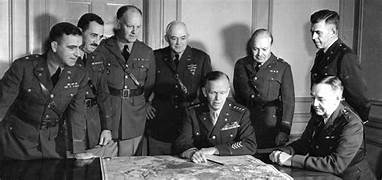Privacy Policy | Terms of Use | Cookie Policy | Disclaimer
Empowering the American middle class — one story at a time.
America’s Conflicts
War has played a defining role in the story of the United States. From the first shots fired at Lexington and Concord to present-day global deployments, America’s history is interwoven with conflict. Each war has left behind not only a battlefield legacy but also economic, political, and emotional footprints that continue to shape the middle class, influence public policy, and define the character of the nation.
The Revolutionary War was the nation’s founding crucible—a bold fight for independence that inspired a new democratic experiment. That war planted the seeds of freedom, self-government, and the enduring belief that ordinary people could build something extraordinary. Yet independence came at great cost, with families divided, lives lost, and a fragile new government forced to navigate an uncertain world. Veterans returned to farms and small towns, seeking peace and purpose in a land they had risked everything to free.
In the 19th century, the War of 1812 confirmed the country’s resilience, and the Mexican-American War expanded its borders. But it was the Civil War—the bloodiest conflict in American history—that tested the very soul of the republic. The battle to preserve the Union and abolish slavery tore communities apart and redefined citizenship, freedom, and federal power. Reconstruction afterward gave a brief glimpse of progress before inequality reemerged in new forms. It left behind a divided South, a transformed federal government, and millions of newly freed people struggling for equality in an uncertain nation.
As the 20th century dawned, the United States stepped onto the global stage. World War I introduced Americans to industrial-scale warfare and international alliances. In World War II, the country became a global superpower, defeating fascism while building the modern economy at home. These wars led to massive mobilization, the rise of women in the workforce, and the birth of the military-industrial complex. They also ushered in a golden age for the American middle class, with steady jobs, affordable homes, and strong unions. War united the nation like never before, but also revealed deep questions about race, class, and global responsibility.
The Cold War that followed led to smaller but intense conflicts—Korea and Vietnam among them. These wars were as much ideological battles as military ones. They provoked widespread protest and deepened generational divides. Working-class Americans shouldered much of the burden, and returning veterans often found themselves struggling with a lack of support and recognition. These conflicts reshaped public attitudes toward war and government accountability, while also fueling debates about military spending, foreign policy, and personal sacrifice.
In more recent decades, the Gulf War, the wars in Afghanistan and Iraq, and the broader War on Terror have dominated the landscape. These modern conflicts are characterized by high-tech warfare, lengthy deployments, and a volunteer military that bears a disproportionate burden. The financial cost has been staggering, while the personal cost to veterans and their families remains immeasurable. The middle class, especially in rural and industrial areas, has continued to provide a majority of those who serve. These wars also introduced a new era of surveillance, homeland security, and psychological tolls such as PTSD, shaping a generation that has known only wartime footing.
Beyond the battlefield, wars have transformed the economy and society. Defense spending fuels entire industries, while wartime policies have led to lasting changes—from the GI Bill and civil rights advancements to surveillance laws and debates over immigration. Wars have inspired innovation but also exposed deep national divisions, as seen during Vietnam and Iraq. They have created heroes, but also widows, orphans, and wounded warriors who must live with the consequences long after the headlines fade. Public trust in government and institutions has often risen during wars but collapsed in their aftermath.
As we reflect on America’s conflicts, we honor those who fought, those who protested, and those who endured. This page serves as a gateway to explore each major war and military event in American history. By understanding the causes, costs, and consequences of each conflict, we gain insight into the challenges that shaped our democracy—and the lessons we must carry forward to protect peace, freedom, and justice for all. These stories are not only tales of generals and battles, but of families, workers, nurses, and factory hands—everyday Americans whose lives were forever changed by war.

